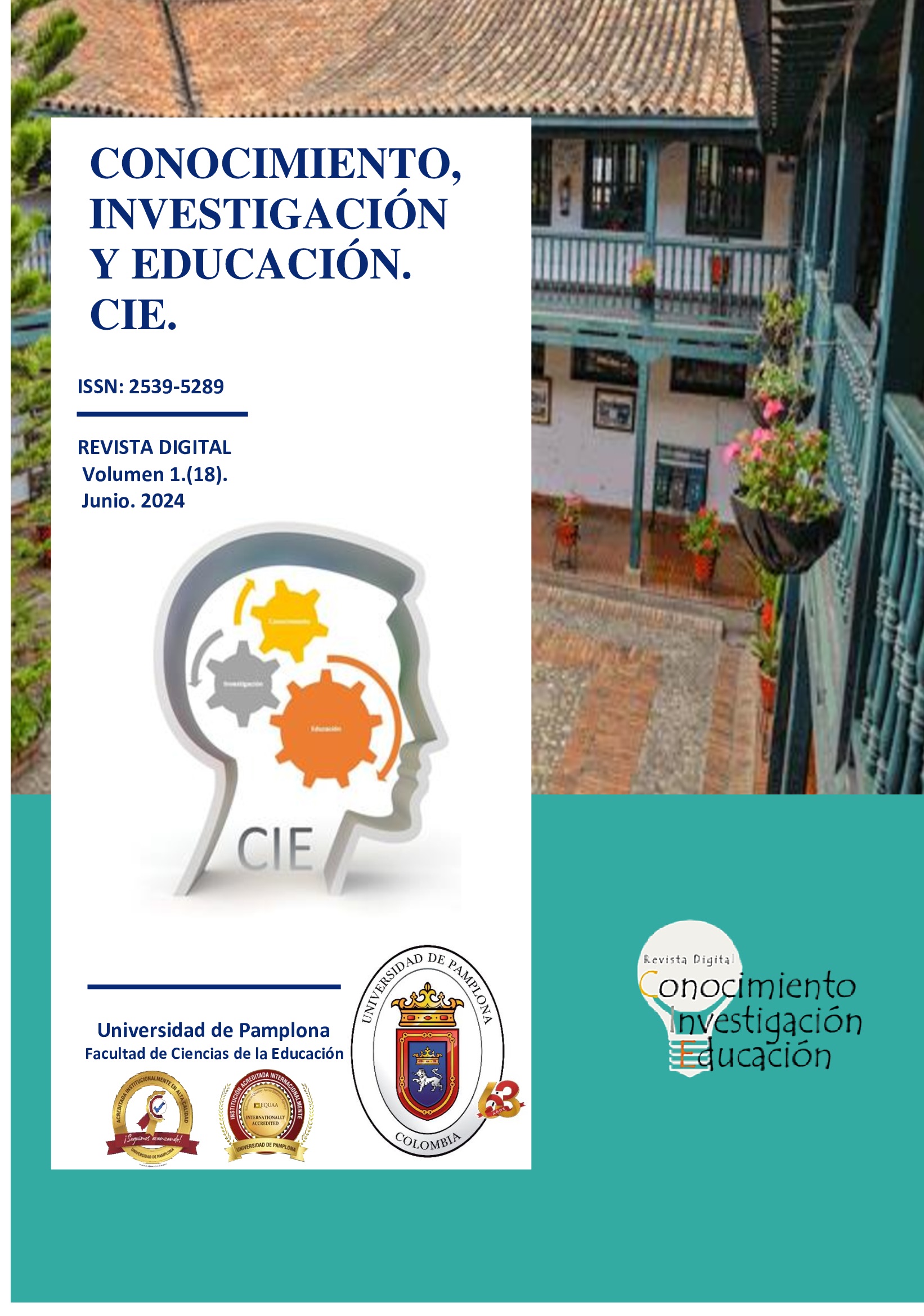El rol de la tecnología en la enseñanza y aprendizaje en la Licenciatura en Educación
DOI:
https://doi.org/10.24054/cie.v1i18.2884Palabras clave:
Accesibilidad, enseñanza, licenciatura en educación, personalización, tecnología educativaResumen
En este artículo, se examina el impacto de la tecnología en la enseñanza y el aprendizaje dentro del contexto de la Licenciatura en Educación. Se explora cómo la integración de la tecnología ha transformado los paradigmas tradicionales de enseñanza y aprendizaje, fomentando la personalización, la colaboración y la accesibilidad. Además, se analiza el papel cambiante del profesor como facilitador del aprendizaje y se identifican los desafíos asociados con la implementación efectiva de la tecnología en este campo. A través de una revisión exhaustiva de la literatura y ejemplos prácticos, se destacan las mejores prácticas para aprovechar el potencial de la tecnología en la educación superior. Se concluye que la tecnología ofrece oportunidades sin precedentes para mejorar la calidad y la equidad de la educación en la Licenciatura en Educación, pero su implementación exitosa requiere una planificación cuidadosa, el desarrollo de habilidades digitales y una consideración continua de las necesidades de los estudiantes.
Descargas
Referencias
Acevedo, J. y Flórez, C. (2017). Desarrollo de Habilidades Visuales en Estudiantes Universitarios: el Caso de la Licenciatura de la Universidad Austral de Chile. Revista Conocimiento, Investigación y Educación. CIE. Vol. 2. (4), 10-17.
Alban, G. P. G., Arguello, A. E. V., & Molina, N. E. C. (2020). Metodologías de investigación educativa (descriptivas, experimentales, participativas, y de investigación-acción). Recimundo, 4(3), 163-173.
Arteaga Alcívar, Y. A., Guaña Moya, E. J., Begnini Domínguez, L. F., Cabrera Córdova, M. F., Sánchez Cali, F., & Moya Carrera, Y. (2022). Integración de la tecnología con la educación. 54. 182-193.
Jurgensen, M.; Bracho, K. y Castillo, O. (2017). Modelo ZC Desde las Aulas de Clase del Programa Licenciatura en Pedagogía Infantil de la Universidad de Pamplona. CIE. Vol. 2. (4), 44-58.
Leliwa, S. (2016). Tecnología: apuntes para pensar su enseñanza y su aprendizaje. Editorial Brujas.
McAnally-Salas, L., Hernández, M. D. R. N., & Lares, J. J. R. (2006). La integración de la tecnología educativa como alternativa para ampliar la cobertura en la educación superior. Revista mexicana de investigación educativa, 11(28), 11-30.
Pineda, W., Casanova, M. & Bracho, K., (2020). Objeto virtual de aprendizaje en la Cátedra de Paz para estudiantes de educación básica primaria. Hamut´ay 7(1), 9-18.
Sáez, M. R. (2019). La educación constructivista en la era digital. Revista Tecnología, Ciencia y Educación, (12). 111-127.
Sánchez-Cabrero, R., Román, Ó. C., Mañoso-Pacheco, L., López, M. Á. N., & Gómez, F. J. P. (2019). Orígenes del conectivismo como nuevo paradigma del aprendizaje en la era digital. Educación y humanismo, 21(36), 121-136.
Torres, A., y Soto, E. (2018). Alfabetización Digital para el Desarrollo de Habilidades Sociales en Estudiantes de Formación Docente. Revista Conocimiento, Investigación y Educación. CIE. Vol. 1. (5), 52-69.
Viñals Blanco, A., & Cuenca Amigo, J. (2016). El rol del docente en la era digital. Revista Interuniversitaria de Formación del Profesorado, (30), 86. 103-114.
Descargas
Publicado
Versiones
- 2024-07-31 (2)
- 2024-04-30 (1)
Número
Sección
Licencia
Derechos de autor 2024 CONOCIMIENTO, INVESTIGACIÓN Y EDUCACIÓN CIE

Esta obra está bajo una licencia internacional Creative Commons Atribución-NoComercial-SinDerivadas 4.0.










